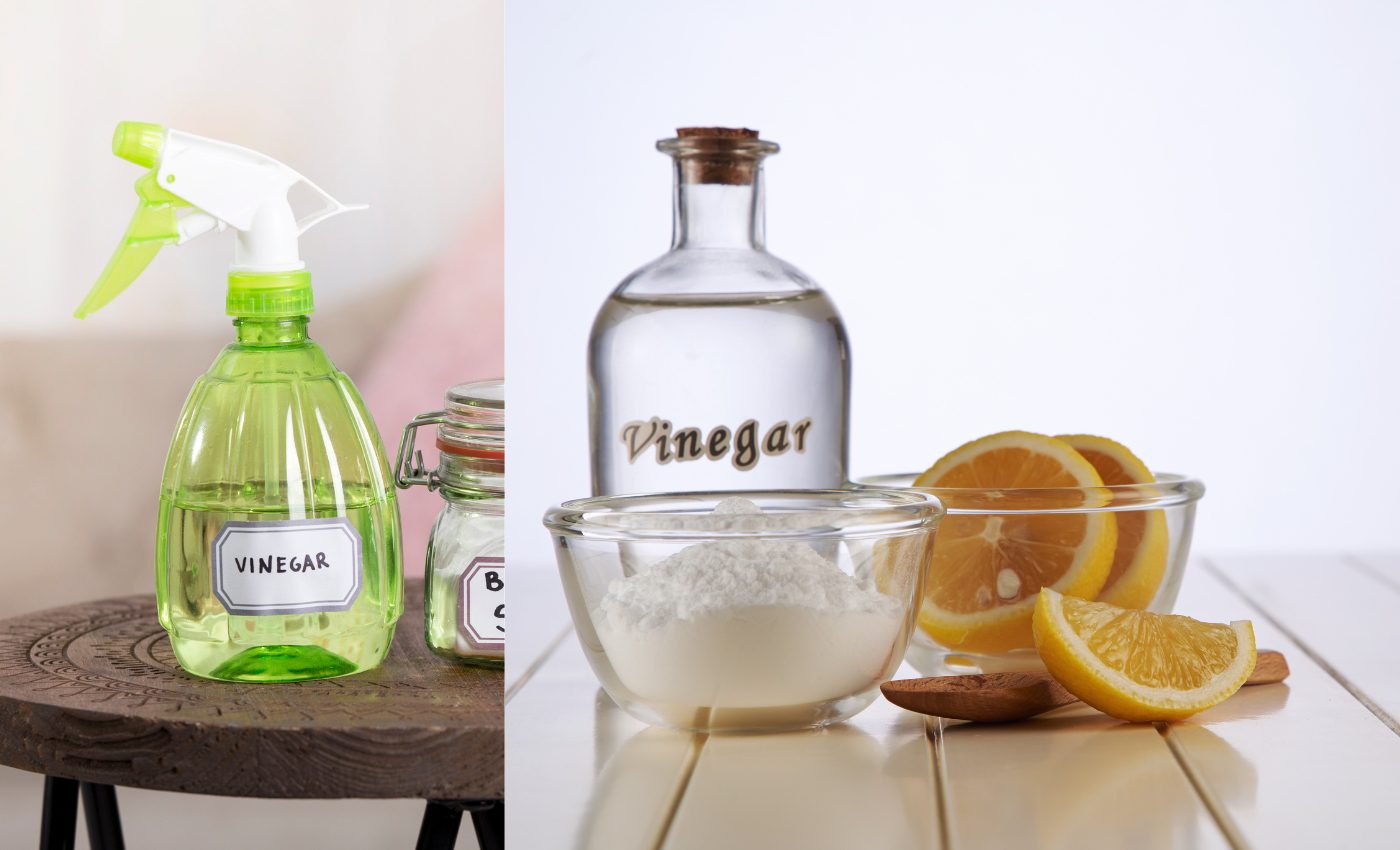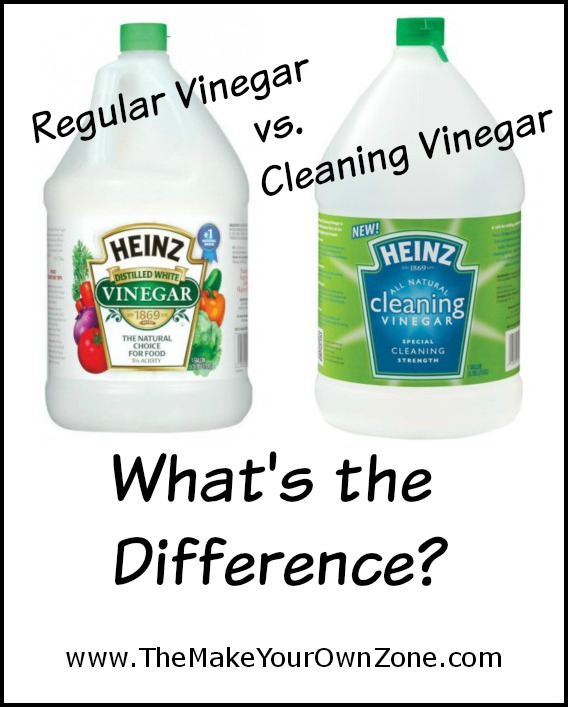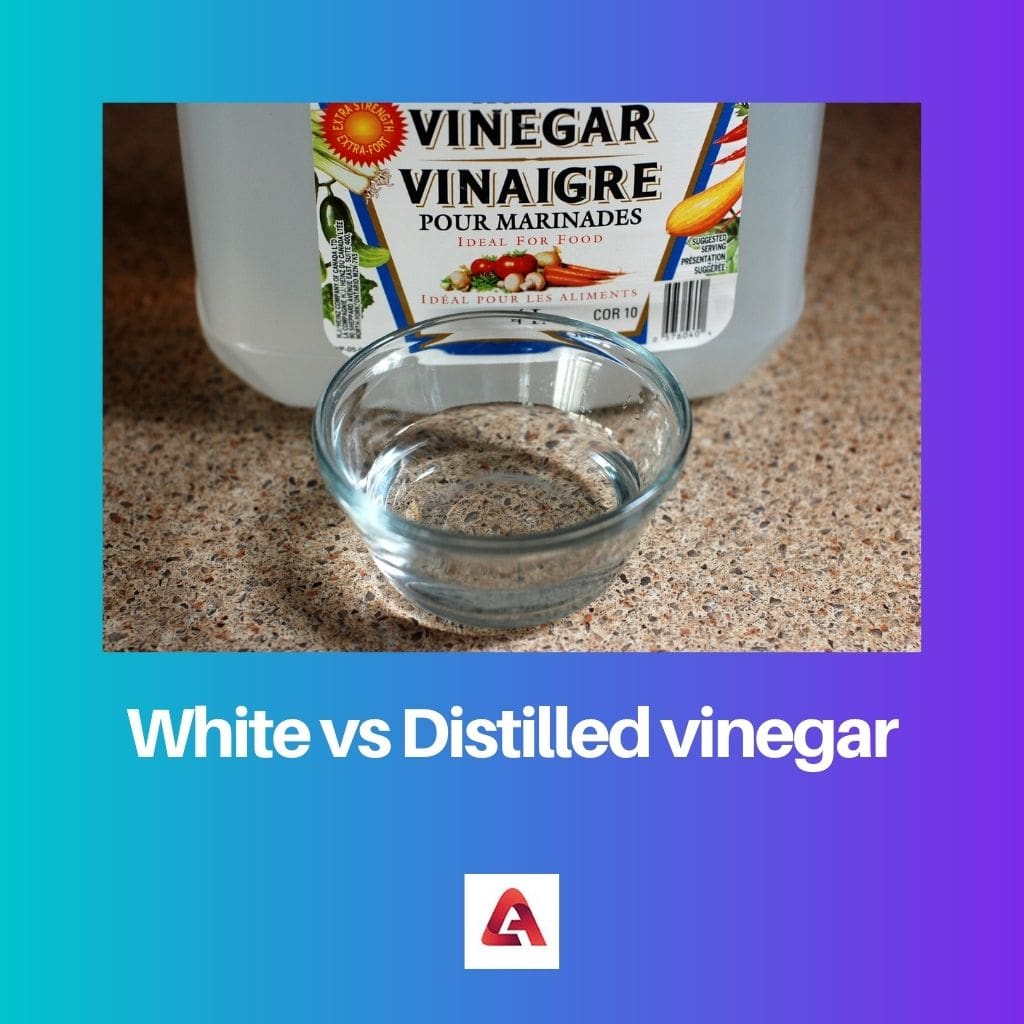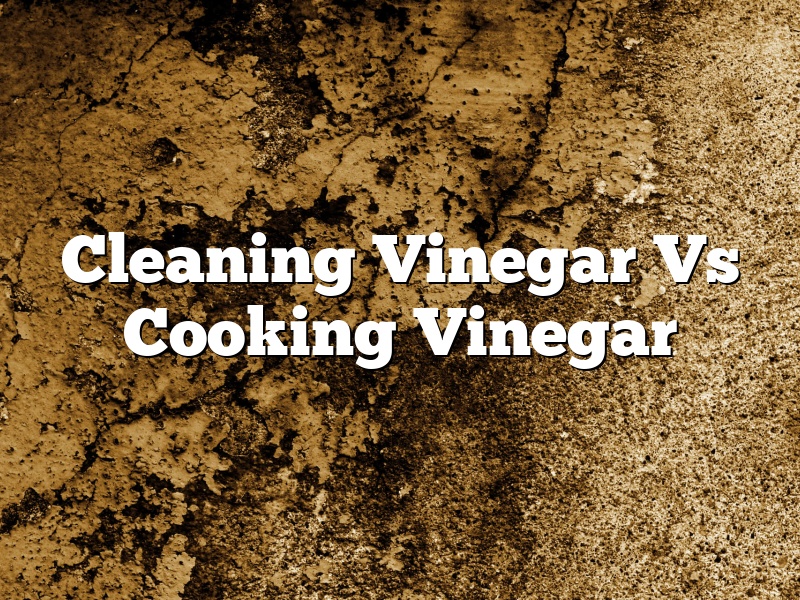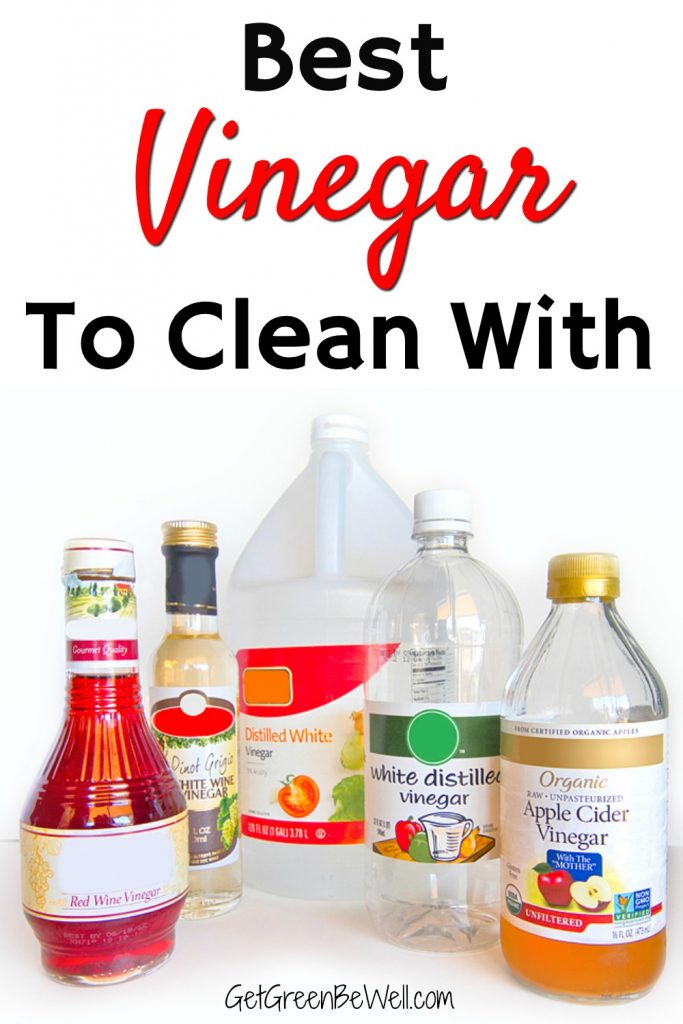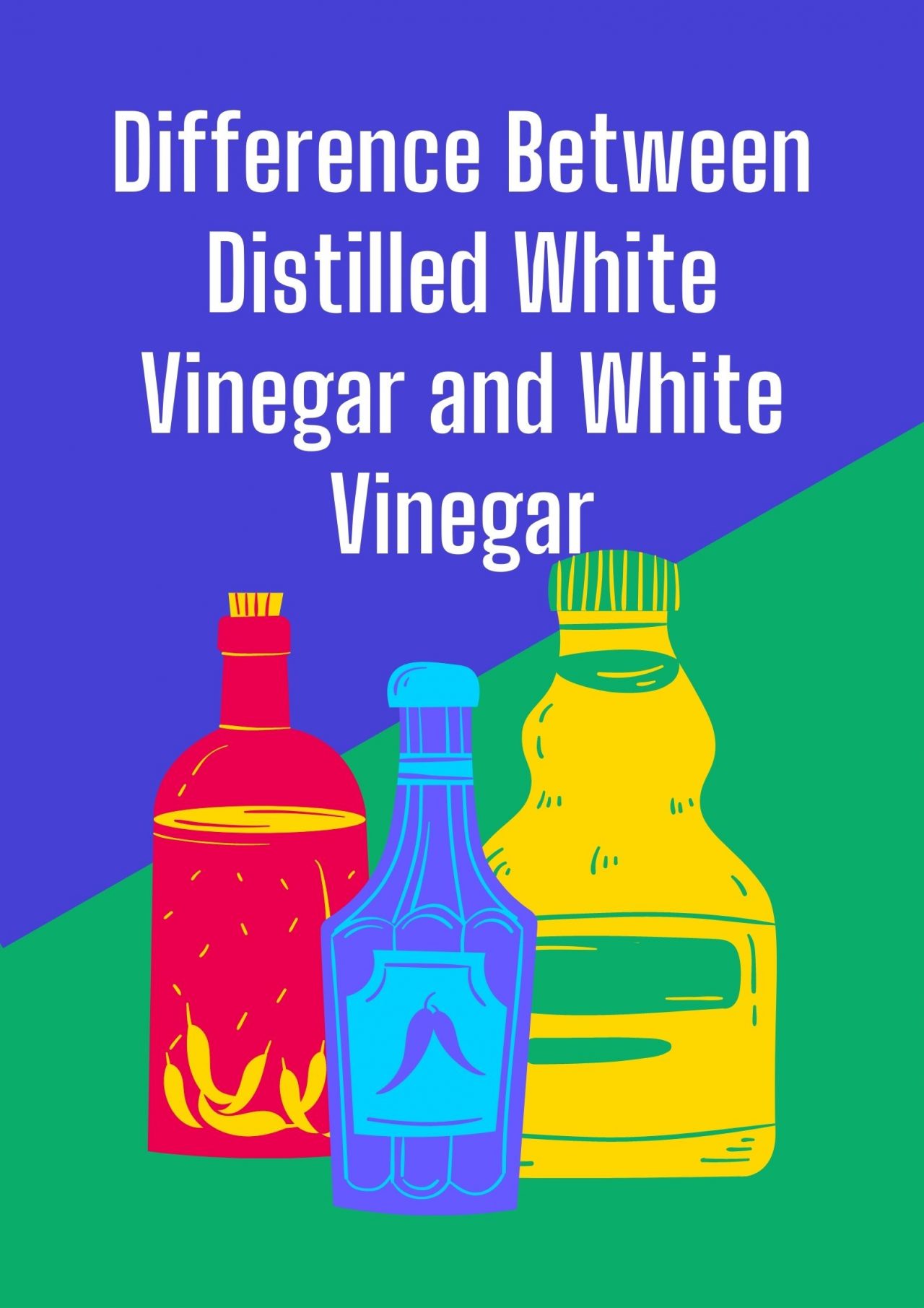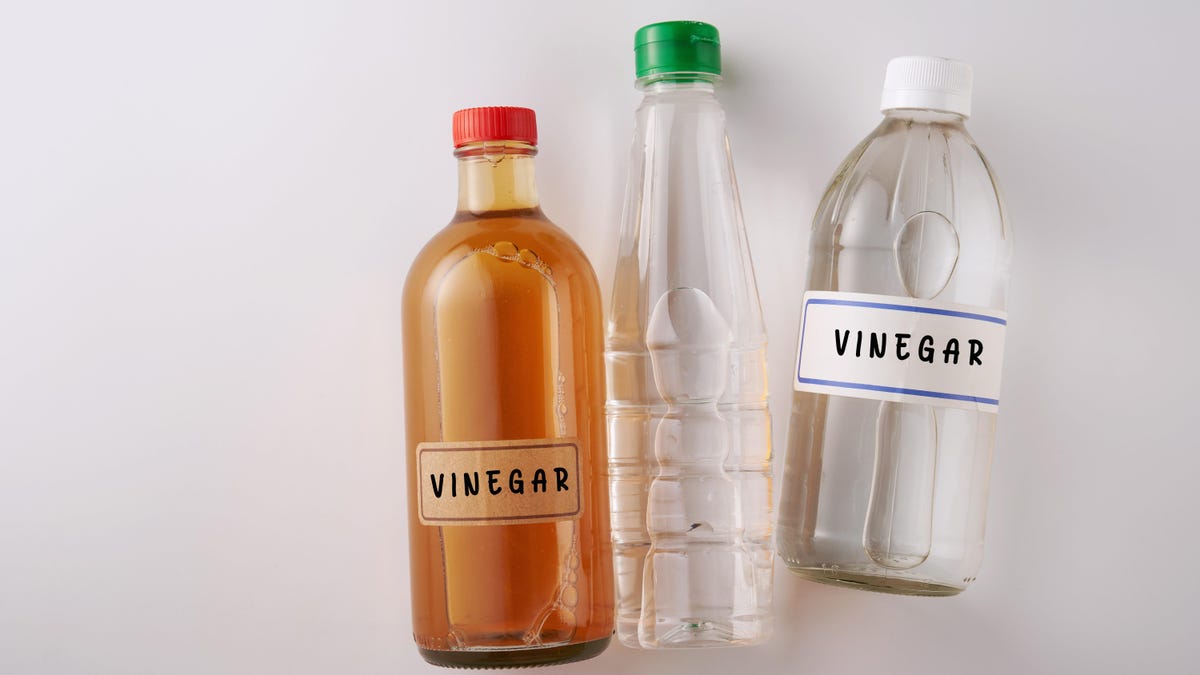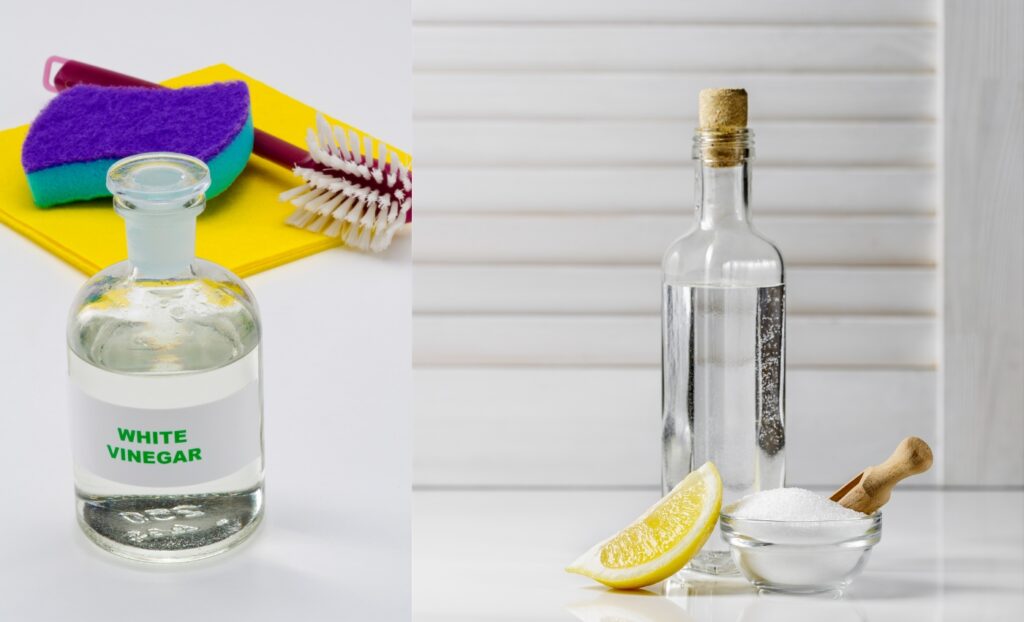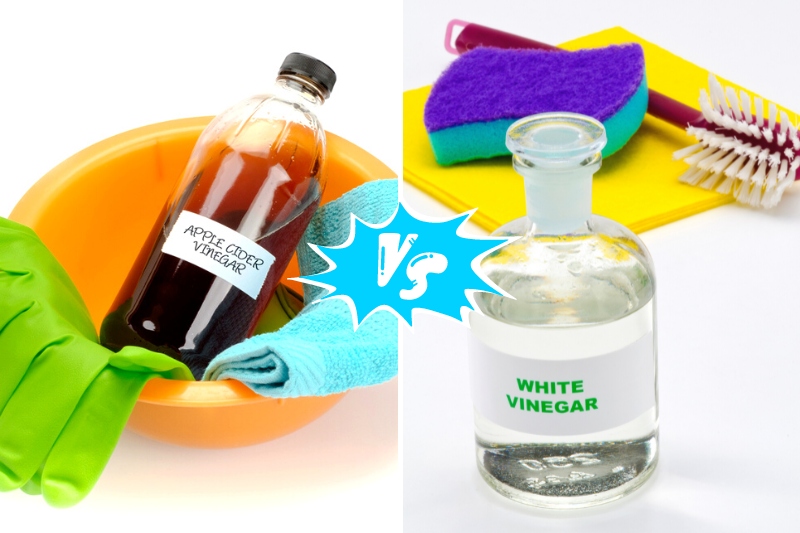What Is The Difference Between Distilled Vinegar And Cleaning Vinegar
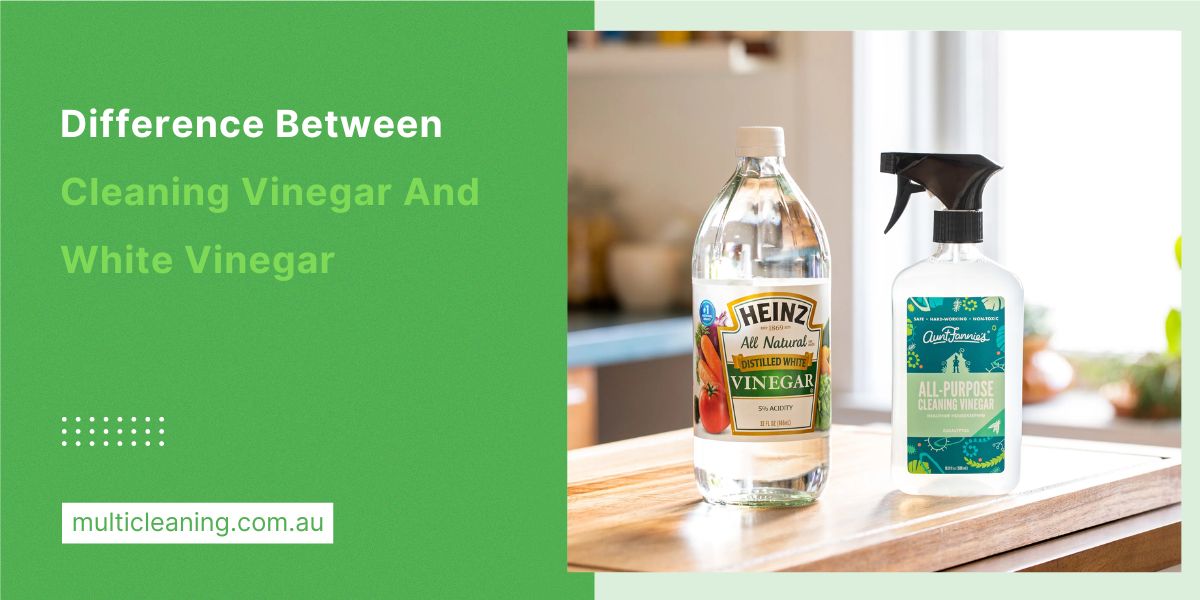
Walk down the cleaning aisle of any supermarket, and you're likely to encounter a variety of vinegar options, each promising different uses. But with similar appearances and even shared origins, the distinction between distilled vinegar and cleaning vinegar can be confusing. Knowing the differences can save you money, prevent potential damage, and ensure you're using the right product for the job.
This article clarifies the key differences between distilled vinegar and cleaning vinegar, explaining their composition, uses, and safety considerations.
Understanding the Basics
Both distilled vinegar and cleaning vinegar are derived from acetic acid, the compound that gives vinegar its characteristic sour taste and smell.
The key difference lies in the concentration of acetic acid. Distilled vinegar, also known as white vinegar, typically contains around 5% acetic acid.
Cleaning vinegar, on the other hand, boasts a higher concentration, usually around 6% acetic acid.
Acetic Acid Concentration: The Deciding Factor
The increased acidity in cleaning vinegar is what makes it a more powerful cleaning agent. It is more effective at dissolving grime, mineral deposits, and hard water stains.
This higher concentration comes with a caveat: it also means cleaning vinegar is not intended for consumption.
The Food and Drug Administration (FDA) regulates vinegar intended for consumption, ensuring it meets certain safety standards. Cleaning vinegar, however, falls outside of these regulations.
Uses in the Kitchen and Beyond
Distilled vinegar’s lower acidity makes it safe for culinary uses. It is often used in salad dressings, sauces, pickling, and even as a tenderizer for meat.
It can also be used for light cleaning tasks, like deodorizing a garbage disposal or cleaning coffee makers.
Cleaning vinegar's higher acidity makes it ideal for tackling tougher cleaning jobs around the house. This includes cleaning bathroom tiles, removing soap scum, and disinfecting surfaces.
Safety Considerations
When using cleaning vinegar, it's crucial to exercise caution. Always wear gloves to protect your skin from irritation.
Ensure adequate ventilation when using it in enclosed spaces. The fumes can be quite strong and potentially irritating to the respiratory system.
Never mix cleaning vinegar with bleach. The combination can create toxic chlorine gas, a severe health hazard. Refer to the EPA for safety guidlines on mixing cleaning products.
Cost and Availability
Both distilled vinegar and cleaning vinegar are readily available at most grocery stores and supermarkets.
Cleaning vinegar is typically slightly cheaper than distilled vinegar due to its unregulated nature and lack of food-grade quality requirements.
However, the price difference is usually minimal, making the choice dependent on your intended use.
The Impact on Consumers
Understanding the difference between distilled vinegar and cleaning vinegar allows consumers to make informed choices about their cleaning products.
Using the correct vinegar type can save money by preventing unnecessary purchases of more expensive or specialized cleaning solutions.
It also promotes safer cleaning practices by ensuring that vinegar intended for consumption is used in food preparation and that cleaning vinegar is handled with appropriate caution.
Choosing the Right Vinegar for the Task
Choosing the right vinegar boils down to its intended purpose. For cooking, stick to distilled vinegar.
For heavier cleaning tasks, cleaning vinegar is the more potent and cost-effective option. Always remember to prioritize safety when using cleaning vinegar by wearing gloves and ensuring proper ventilation.
By understanding the subtle yet significant differences between these two vinegars, you can effectively utilize their unique properties and ensure a clean and healthy home.
Expert Advice: "When in doubt, read the label!"
According to the Cleaning Institute, reading product labels is crucial for understanding a product's intended use and safety precautions.
They recommend following manufacturer instructions carefully to ensure optimal performance and prevent potential hazards.
By staying informed and practicing safe cleaning habits, consumers can make the most of these versatile and affordable cleaning solutions.
